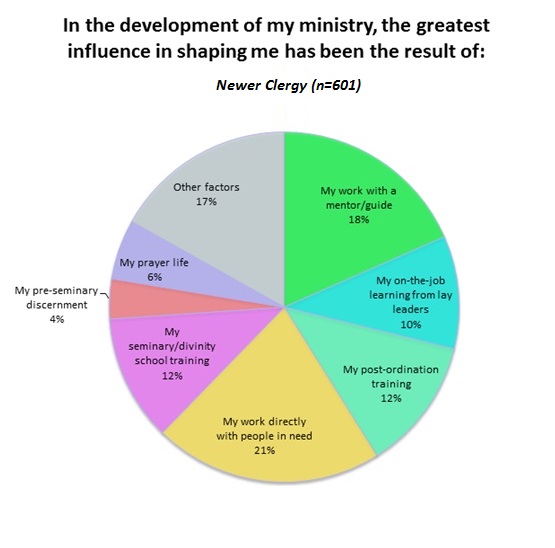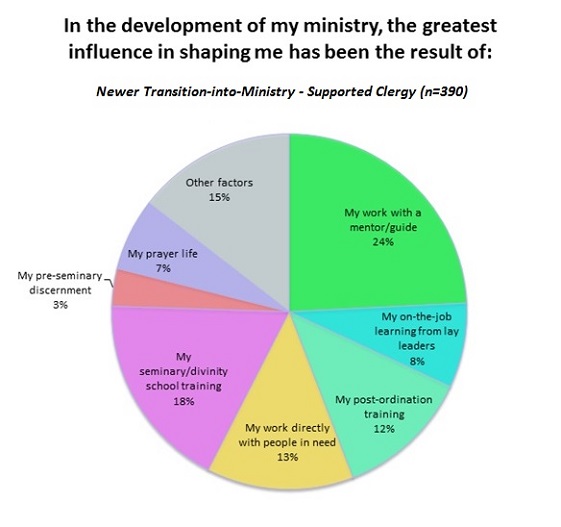Denominations and seminaries alike invest significant trust in the impact of seminary education on the formation and development of clergy. No doubt seminary education provides important value, but it may not be as important as we think. For the majority of pastors and priests, other influences rise to the top as having the greatest influence on their ministerial development.
We asked recently ordained pastors and priests across denominations to indicate what had the greatest influence shaping their development as ministers and leaders. As shown on the chart on the first slide above, the majority of clergy indicated that individuals and situations post-seminary were most influential on their development. Only 12% selected seminary or divinity school as their most significant influence. And only 4% claimed that their discernment prior to seminary toward ordination was most influential.
As shown in the greenish colors, the largest group of clergy (40%) picked influences that involved their active participation in some focused form of self-development after seminary and ordination – regular consultation with a mentor (18%), direct learning from lay leaders on the job (10%), or specific training programs after ordination (12%).
An additional 21% noted that the work of ministry itself, with people in need, was most influential. This may have occurred before, during, or after seminary and ordination. There can be a general sense among clergy, like in any field, that the best learning is by “just getting out there and doing it.” But there is a pitfall with this approach: Sometimes “just doing it,” without additional training and consultation, contributes to learning bad habits in ministry and leadership.
When we asked the same question of new clergy who received significant post-seminary support and training for continuous development, we found a similar pattern, with a few noteworthy differences (see second slide, above).
These clergy, who had benefited from structured programs of support and training, more frequently endorsed mentors as having the most significant impact on their ministry and leadership (24% compared with 18%). They also more frequently endorsed seminary as most influential (18% compared with 12%); for many of these pastors and priests, their post-seminary programs began through their seminaries. But these supported new clergy less frequently chose the work of ministry itself (12% compared with 21%)—because there were other sources of helpful influence provided.
For Your Consideration
- When does “just doing it,” without guidance or special training, contribute to learning bad habits in ministry and leadership?
- Do you find that you do better when you “learn by doing” or when you have a teacher or mentor?
Related Article




